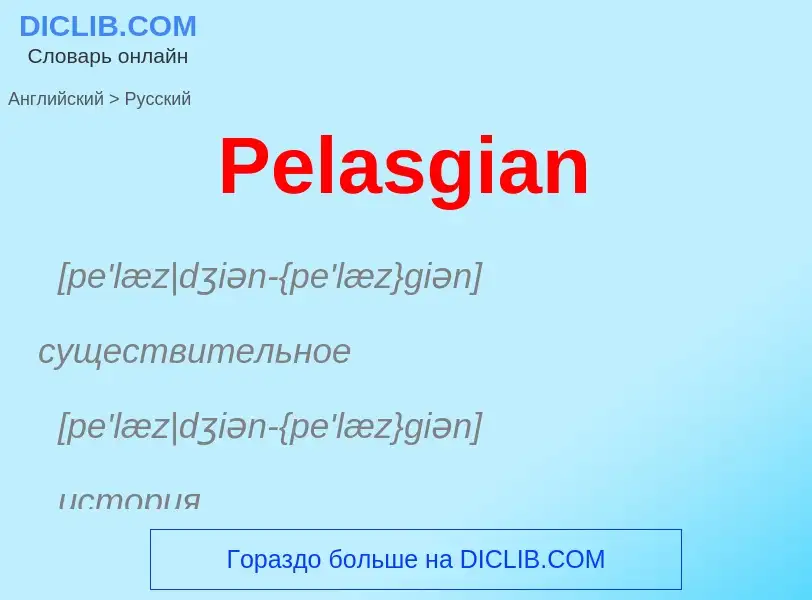Traducción y análisis de palabras por inteligencia artificial ChatGPT
En esta página puede obtener un análisis detallado de una palabra o frase, producido utilizando la mejor tecnología de inteligencia artificial hasta la fecha:
- cómo se usa la palabra
- frecuencia de uso
- se utiliza con más frecuencia en el habla oral o escrita
- opciones de traducción
- ejemplos de uso (varias frases con traducción)
- etimología
Pelasgian - traducción al ruso
[pe'læz|dʒiən-{pe'læz}giən]
существительное
[pe'læz|dʒiən-{pe'læz}giən]
история
пеласг
синоним
[pe'læz|dʒik-{pe'læz}gik]
прилагательное
история
пеласгический
Wikipedia

The name Pelasgians (Ancient Greek: Πελασγοί, Pelasgoí, singular: Πελασγός, Pelasgós) was used by classical Greek writers to refer either to the predecessors of the Greeks, or to all the inhabitants of Greece before the emergence of the Greeks. In general, "Pelasgian" has come to mean more broadly all the indigenous inhabitants of the Aegean Sea region and their cultures, "a hold-all term for any ancient, primitive and presumably indigenous people in the Greek world".
During the classical period, enclaves under that name survived in several locations of mainland Greece, Crete, and other regions of the Aegean. Populations identified as "Pelasgian" spoke a language or languages that at the time Greeks identified as "barbarian", though some ancient writers nonetheless described the Pelasgians as Greeks. A tradition also survived that large parts of Greece had once been Pelasgian before being Hellenized. These parts fell largely, though far from exclusively, within the territory which by the 5th century BC was inhabited by those speakers of ancient Greek who were identified as Ionians and Aeolians.


![Peneus]]. Peneus]].](https://commons.wikimedia.org/wiki/Special:FilePath/Thessaly Plain.jpg?width=200)
